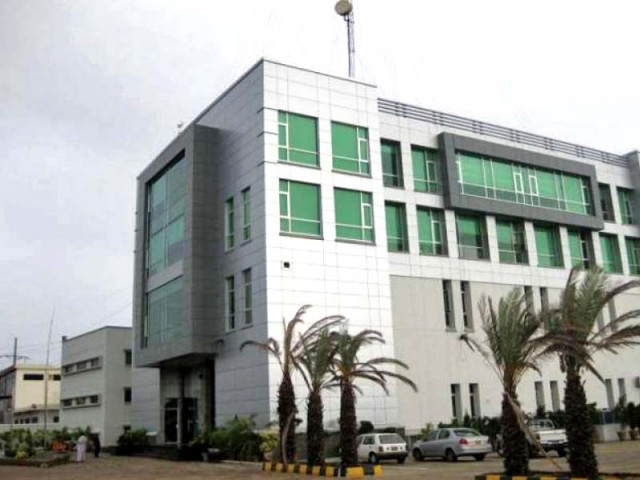Ministries ask K-Electric to disclose stake sale agreement
Government comes under pressure to approve sale of majority stake in power utility before end of its tenure

The Privatisation Commission has not yet given the National Security Clearance Certificate to K-Electric which is a prerequisite for the proposed stake sale PHOTO: FILE
In order to find a solution to the one-and-a-half-year-old impasse, Foreign Affairs Minister Khawaja Muhammad Asif held a meeting with all the stakeholders on Thursday. However, his ministry has nothing to do with privatisation and related matters.
Adviser to the prime minister on finance, power minister, privatisation minister and delegates of Shanghai Electric Power and K-Electric attended the meeting.
K-Electric's profit jumps 16% to Rs32.75 billion in FY17
The meeting was called keeping in view the 12-week period the government has to get the job done. The five-year tenure of the government will end in the first week of June.
In August 2016, the Abraaj Group struck a deal to sell KES Power - the offshore entity that controls 66.4% of K-Electric shares - to China-based Shanghai Electric Power. At that time, the deal was estimated at $1.77 billion and was contingent upon the settlement of issues between the government and the seller.
The Privatisation Commission has not yet given the National Security Clearance Certificate to K-Electric which is a prerequisite for the proposed stake sale. The commission has withheld the certificate because of delay in the settlement of financial dues and being unaware of contents of the proposed sale-purchase agreement.
The Ministry of Privatisation, Ministry of Interior and Ministry of Defence have linked the clearance certificate with disclosure of the sale-purchase agreement, according to officials who attended the meeting.
However, K-Electric’s representative was reluctant to share the document with the government departments, they added.
According to Section 36 of the Privatisation Ordinance, “the Commission may call for any information required by it for carrying out the purposes of this ordinance from any person involved, directly or indirectly, in privatisation activities or any matter incidental or consequential thereto.”
K-Electric was asked to produce the agreement if it wanted early endorsement of the deal, said the officials.
K-Electric announces fresh $1-billion investment
The agreement was a constituent document of the proposed transaction and the government could not afford to overlook it, a senior government official told The Express Tribune.
The ordinance further states “any such person shall be liable to provide the required information called by the Commission, failing which he shall be liable to a fine or other penalty as prescribed from time to time.”
The Ministry of Defence also wanted firm guarantees for electricity supply to its vital security installations in Sindh. Because of that reason, the officials said, the defence ministry also wanted a copy of the sale-purchase agreement.
K-Electric is the country’s largest integrated power utility and has assured the government that it will ensure power supply to vital defence installations at all times.
The Petroleum Division has also not given its consent and on Thursday again asked K-Electric to clear its dues of Rs79 billion, another government official said.
K-Electric people were of the view that only the ownership structure was being changed and the liabilities belonged to the entity.
The officials said K-Electric was asked to finalise a financial settlement plan with the Petroleum Division in the next few days. Once the Petroleum Division and K-Electric reach an understanding, another meeting will be held to review the status. The Power Division has already informed the privatisation ministry that it was separately looking at the issue of Rs60 billion worth of dues that K-Electric owed the National Transmission and Despatch Company (NTDC) on account of electricity supply cost.
The Abraaj Group does not want to pay interest and is seeking settlement of the principal amount.
The final value of the deal could be less than $1.77 billion as the National Electric Power Regulatory Authority (Nepra) has not accepted K-Electric’s demand to set a higher tariff for the next five years.
Nepra revised the base tariff upwards to Rs12.77 per unit from Rs12.07 effective July 2016, which would remain in place till 2023. K-Electric had sought an increase to Rs15.57 per unit for sustainability of its operations.
Published in The Express Tribune, March 9th, 2018.
Like Business on Facebook, follow @TribuneBiz on Twitter to stay informed and join in the conversation.


















COMMENTS
Comments are moderated and generally will be posted if they are on-topic and not abusive.
For more information, please see our Comments FAQ